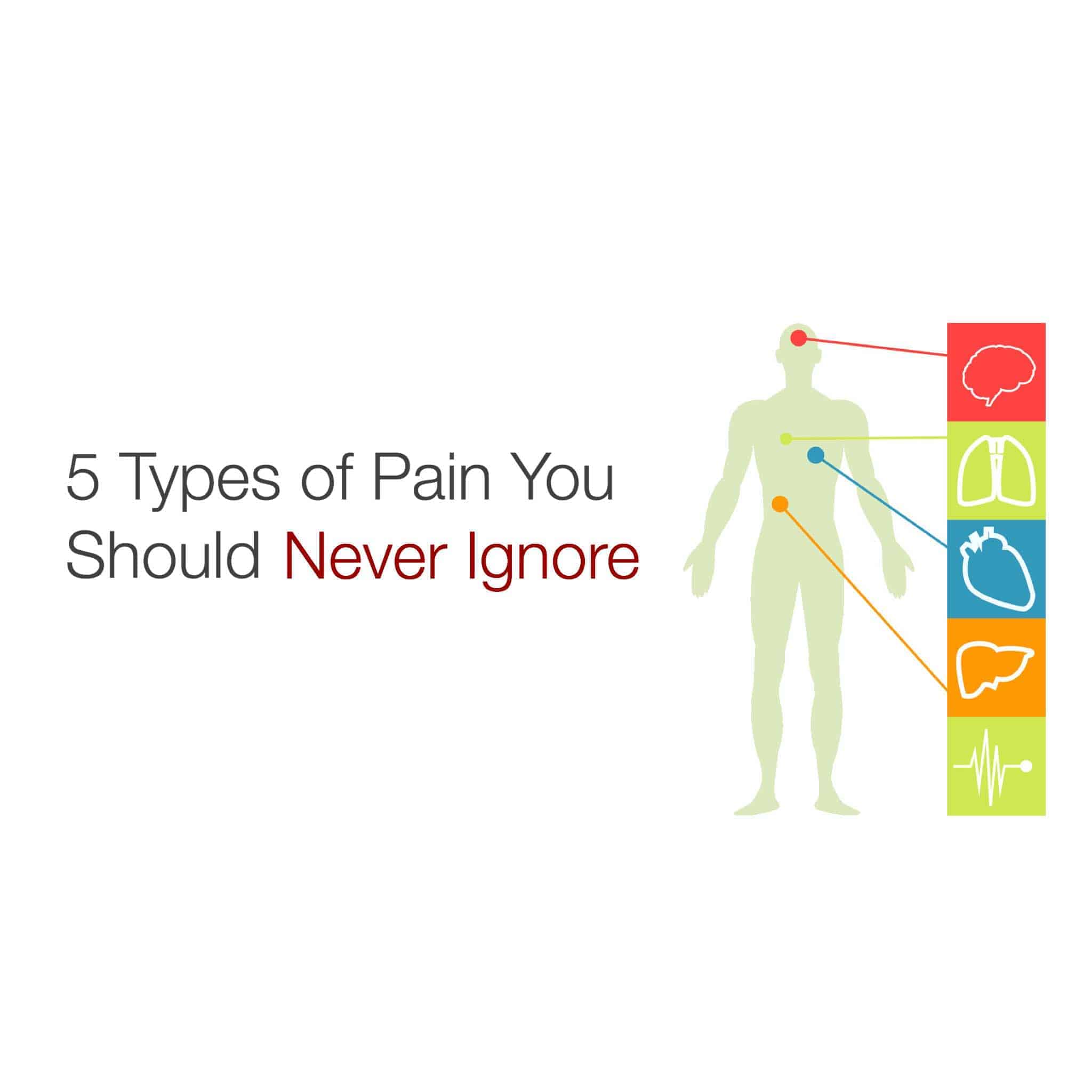We all deal with minor aches and pains in everyday life, from dull headaches to joint pain to sore muscles. Unfortunately, we can’t avoid pain altogether during our human experience. But luckily, most pain doesn’t signal anything wrong going on beneath the surface.
However, you should take the following types of pain seriously. And it is imperative to seek advice from a wellness professional as soon as possible to get it checked out.
Five Types of Pain Many People Ignore, Even Though They Shouldn’t
Here are five types of pain you should never ignore. If you experience these symptoms, you need to seek medical attention.
1. Chest pain
Heart problems most commonly cause chest pain. However, it can also signal problems with the lungs, esophagus, ribs, muscles, or nerves. Approximately 25% of the U.S. experiences chest pain unrelated to the heart, but you shouldn’t take any chances upon feeling a sharpness in your chest. Pain in this area can point to a severe, life-threatening problem, such as a heart attack, coronary artery disease, myocarditis, or other serious health problems. Other common causes of chest pain include pneumonia, a pulmonary embolism, acid reflux, muscle strain, and pancreatitis.
2. Middle back pain along with a fever
Experts also warn that experiencing pain in the middle of your back, fever, vomiting, chills, and confusion, can signal a kidney infection. If the pain persists during urination, this strongly suggests a kidney infection. Because the kidneys are located in the back of the abdomen, back pain usually accompanies the infection. The kidneys filter blood, remove waste, and balance fluids and electrolytes. Bacteria in the urinary tract cause a kidney infection, so if you feel middle back pain and experience fever along with it, see a doctor as soon as possible.
3. Pain on the lower right side of your abdomen
Feeling a sharp, stabbing pain on the lower right side of the abdomen usually signals one thing: appendicitis. While we don’t need our appendix to function properly, appendicitis can be fatal if not treated promptly. The appendix extends from the large intestine, and if left inflamed, it will eventually burst, leaking toxic fluids into the abdominal cavity. In turn, this can lead to the inflammation of the abdominal cavity. That dire situation can be fatal unless treated with powerful antibiotics.
If you feel pain in this area of your abdomen, loss of appetite, vomiting or nausea, a high fever, an inability to pass gas, and abdominal swelling, see a doctor immediately.
4. Splitting headaches that come on without warning
We all get headaches occasionally, usually from work strain, a hard workout, not eating enough, or dehydration. These headaches tend to go away after we relax, take a quick nap, or take pain medicine.
However, feeling unbearable, blinding sensations in your head suddenly can signal something more serious. Called thunderclap headaches, they can point to many severe health problems, including an aneurysm, a blood clot, meningitis, a rupture of the blood vessel in the brain, a tumor in the brain, or a tear in the lining of an artery.
If you experience severe pain in your head for more than a few days and notice nausea, vomiting, and neck and lower back pain, consult your doctor as soon as possible.
5. Tooth or jaw discomfort that wakes you up at night
According to reports, between 50 to 96 percent of adults experience teeth grinding or bruxism. Since it’s such an expected behavior, many people think nothing of it and ignore the symptoms associated with tooth grinding. However, leaving it unchecked for an extended period can lead to severe tooth and jaw problems, such as fracturing or total loss of teeth, as well as changing the appearance of your face.
It can be difficult to find out if you grind your teeth during sleep if it doesn’t wake you up at night. Common signs of teeth grinding include a dull headache and sore jaw upon waking in the morning. Most of the time, tooth grinding indicates underlying stress. But you can combat this unconscious behavior by using a nightguard while you sleep.
Final Thoughts on Identifying Pain and Understanding What Causes It
Pain is a signal or message from your brain and body. It alerts you that something inside you is awry. This signal from your body is not something to take lightly. So this information is imperative–don’t ignore it if it persists for a short time. If the pain becomes severe or lasts for a short while, contact your doctor. A medical professional can give you the proper guidance and advise you of whether you can treat the issue at home or seek treatment immediately.

















